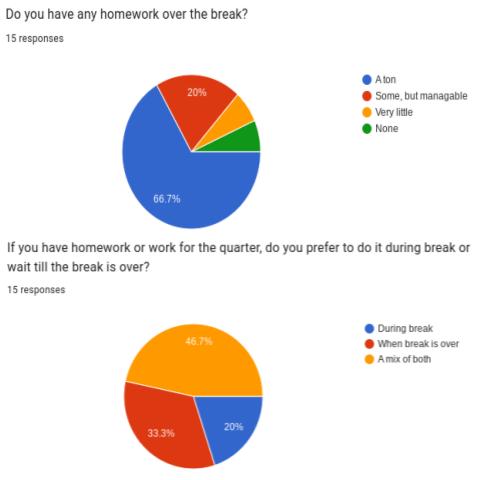By: Sean Cassar
“Good morning, Tuscarora…” Every student in Loudoun County hears some slightly modified version of these words every morning. They are not only a greeting from the principal, but they mark the beginning of a new school day. Those individuals that attend a Loudoun County high school or middle school understand that their schedule for the rest of the day varies. The school is not only made up of cinder blocks and cement. Within the social structure that defines the school, block scheduling is at the center. The thought of having four classes a day instead of eight seems to create a cloud of positive thoughts that blind people from the ever important negative results this scheduling can engender.
Four classes a day doesn’t sound that bad at first, but when you realize that every class is an hour and a half long, your grand illusion seems to fade away. Most students see these longer class periods as a hindrance to their learning. Junior Ben Fuhrman says, “A lot of time is wasted in classes because teachers can’t fill up the whole block.” He later states, “You really lose your attention span after the first 20 minutes go by.” How can a student learn if they tune out after 20 minutes? Another student has a similar opinion on block scheduling. Junior Alex McKenna noted that the constant interruptions of all classes except for 3rd and 7th block creates an unequal amount of knowledge. In his words, “[the scheduling] is very unfair in that you are not getting an equal amount of time for your academic classes.” He uses P.E. as an example: he concludes that you lose the opportunity to gain more understanding in knowledge-based classes if you spend the majority of your time in classes that are non-academic.
Mr. Burnett, the Social Studies Department Chair, created a well-worded summary of these thoughts. In his opinion, “it’s a poor model for teaching.” He feels that block scheduling “is an inefficient use of [the teacher’s] time.” He believes that for successful teaching of the subject, the student needs to be taught the material every day. Otherwise, he says, “We have to spend more time re-teaching the material.” As a teacher, his main priority in life is teaching the students to the best of his ability. If he spends all his time re-teaching material, then the kids are not going to absorb the knowledge.
Some students sit on the other side of the opinions scale.
Sophomore Noah Anderson says that block scheduling allows him to focus on just four subjects a day. He argues that in traditional scheduling he would “feel swamped by fourth block.” Junior Austin Cromwell had similar ideas. He argues, “I would not be able to focus all day and I’d be more talkative because of the constant movement.” Though these opinions seem to glorify block scheduling, the negatives are too important to outweigh the positives.
If these personal opinions aren’t enough, studies have also been completed about the subject. A Comparative Study of Block Scheduling and Traditional Scheduling on Academic Achievement by William W. Lawrence and Danny D. Mcpherson concluded that traditionally-scheduled students had higher mean test scores in every subject than those who participated in block scheduling. These results are enough to dethrone block scheduling from the public school system.





